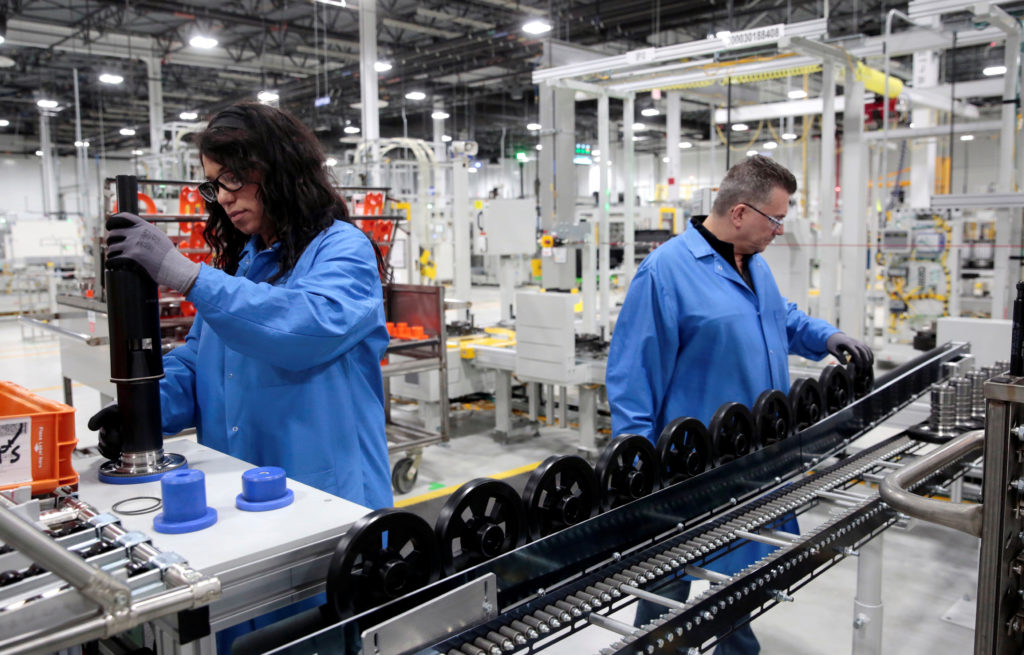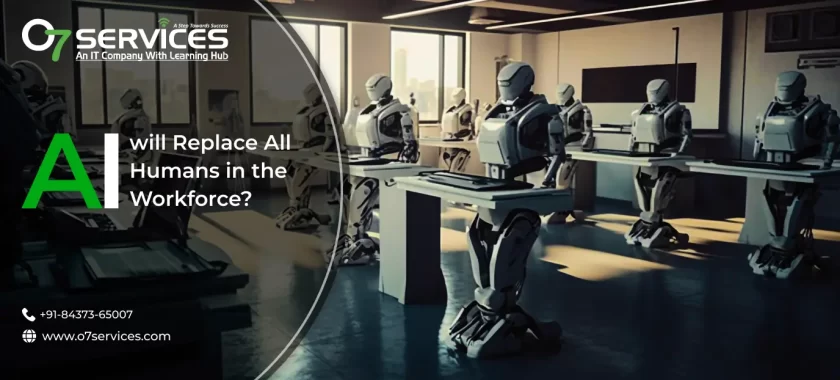AI will Replace All Humans in the Workforce
AI Will Replace All Humans in the Workforce: AI, or artificial intelligence, is like the brainpower behind some of the smartest machines out there. It’s all about making computers do things that usually need human smarts, like learning from data, making decisions, and solving problems. Think of it as teaching a computer to think for itself, but without the need for coffee breaks or complaining about overtime.
AI helps machines become super handy at many things, from recognising your voice to playing chess like a grand master. It’s like having a trusty sidekick for all sorts of tasks, making life a tad easier and way more interesting.
Benefits Of AI Will Replace All Humans in the Workforce
AI has the potential to benefit humanity greatly.
- The first benefit is that it saves time. Imagine that AI can process data, compute numbers, and do time-consuming jobs faster than we can blink. There will be more time for the things that matter and less time spent on worthless activities as a result.
- It also works as a genuine brain enhancer. AI can analyze enormous volumes of data to help us make better decisions in a variety of areas, including finance and healthcare.
- Don’t forget about safety either. We may avoid danger by using self-driving cars, AI-driven security systems, and even medical diagnosis bots.
- Finally, AI is a workhorse that never needs to rest. It can perform dangerous or boring tasks, freeing humans to concentrate on creativity and problem-solving.
What careers will likely be replaced by AI?
The term of the decade is Ai Will Replace All Humans in the Workforce. Virtual personal assistants and self-driving cars are only a couple of the many aspects of our lives that it greatly impacts.
Where are our jobs, though? Are some of them about to say goodbye to AI? The quick response is, of course. Without using any fancy business speak, let’s get into the specifics of which jobs AI might replace.
- Data Entry Clerks: If you’ve ever spent long hours typing numbers and data into spreadsheets, brace yourself. AI can do this faster and more accurately. It doesn’t need coffee breaks or complain about repetitive tasks.

- Cashiers: Self-checkout kiosks at supermarkets are just the tip of the iceberg. AI-powered systems can handle payments and receipts, so human cashiers might be in short supply.
- Telemarketers: Nobody likes those unsolicited phone calls during dinner. AI chatbots can handle customer inquiries and even make sales calls. Goodbye, telemarketing headaches.
- Drivers: Truck drivers and taxi drivers may have an unclear future as self-driving cars approach the market. AI doesn’t get tired or distracted by the view.
- Manufacturing Workers: AI-driven robots are becoming more sophisticated, handling tasks from welding to packaging. The assembly line might soon be a line of machines.

- Bookkeepers and Accountants: AI can crunch numbers and analyze financial data faster and with fewer errors than humans. The days of the number-crunching accountant might be numbered.

- Radiologists: AI algorithms can analyze medical images like X-rays and MRIs, potentially catching diseases earlier and more accurately than human doctors.

- Writers and Content Creators: Yep, even we writers are not safe. AI can generate content, and while it might not win a Pulitzer, it can churn out articles, reports, and even poetry.

- Farmers: AI-powered tractors and drones can monitor crops and optimize planting and harvesting. The good old days of manual farming might be behind us.
- Security Guards: AI surveillance systems can detect intruders and unusual activities more effectively than human security guards, and they don’t need bathroom breaks.
Even though AI is permeating a variety of sectors, it’s critical to keep in mind that technology can also generate new employment prospects. In this constantly shifting workplace, adapting and picking up new skills will be essential. Consequently, whether or not you hold one of these jobs, it’s a good idea to keep an eye on the technology landscape and be prepared to change. Who knows, perhaps the career that AI replaces today will be the job of tomorrow!
The work market is changing as a result of AI, but not entirely for the worse. We can adapt and thrive in this new environment led by AI. Consider it a push to explore other opportunities and keep studying if you find yourself in a position where AI could eventually replace you. The future, after all, belongs to those who can ride the AI wave and make it work for them.






Leave a Reply